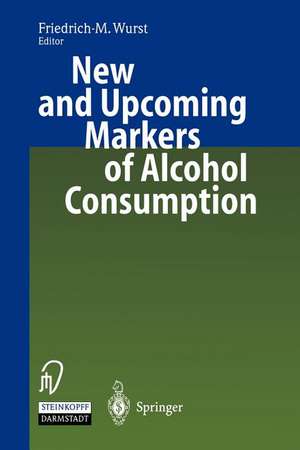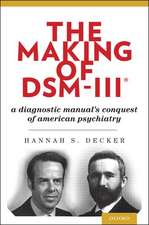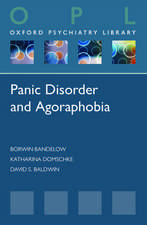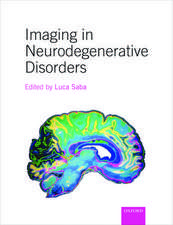New and Upcoming Markers of Alcohol Consumption
Editat de Friedrich M. Wursten Limba Engleză Paperback – 22 feb 2012
Preț: 707.50 lei
Preț vechi: 744.73 lei
-5% Nou
Puncte Express: 1061
Preț estimativ în valută:
135.38€ • 141.73$ • 112.02£
135.38€ • 141.73$ • 112.02£
Carte tipărită la comandă
Livrare economică 05-19 aprilie
Preluare comenzi: 021 569.72.76
Specificații
ISBN-13: 9783642960109
ISBN-10: 3642960103
Pagini: 144
Ilustrații: VII, 132 p.
Dimensiuni: 155 x 235 x 10 mm
Greutate: 0.21 kg
Ediția:Softcover reprint of the original 1st ed. 2001
Editura: Steinkopff
Colecția Steinkopff
Locul publicării:Heidelberg, Germany
ISBN-10: 3642960103
Pagini: 144
Ilustrații: VII, 132 p.
Dimensiuni: 155 x 235 x 10 mm
Greutate: 0.21 kg
Ediția:Softcover reprint of the original 1st ed. 2001
Editura: Steinkopff
Colecția Steinkopff
Locul publicării:Heidelberg, Germany
Public țintă
Professional/practitionerCuprins
3 Biological and genetic markers of alcoholism — a psychiatric perspective.- 4 Possible role of long chain fatty acid ethyl esters in organ injury and as short-term markers of ethanol intake in humans.- 5 Methanol and congeners as markers of alcohol use and abuse.- 6 5-HTOL is a sensitive marker of recent alcohol consumption.- 7 The direct ethanol metabolite ethyl glucuronide: A specific marker of recent alcohol consumption.- 8 Phosphatidylethanol; clinical significance and biochemical basis.- 9 Proteins modified by direct and indirect ethanol metabolites, and their associated antibodies, as markers of alcohol intake.- 10 Salsolinol — An endogenous neurotoxin in the biology of alcoholism.













